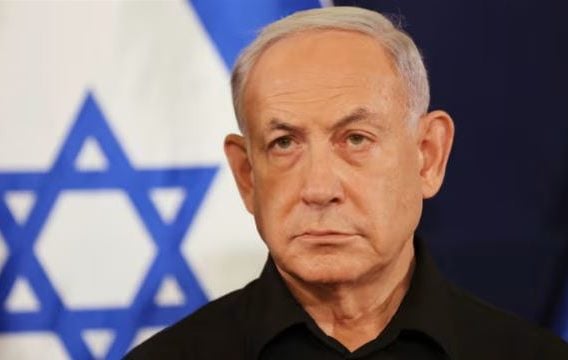The international political landscape shifted dramatically on Sunday as Britain, Australia, and Canada formally recognized a Palestinian state, a move that drew immediate and sharp condemnation from Israeli Prime Minister Benjamin Netanyahu. This trilateral recognition marks a significant turning point, with these nations becoming the first Western bloc to acknowledge Palestinian statehood. Netanyahu characterized the decision as a “huge reward to terror,” directly linking it to the Hamas attack of October 7, 2023, which triggered the ongoing conflict in Gaza. He categorically stated that a Palestinian state west of the Jordan River would not be established under his watch, setting the stage for potential diplomatic clashes and escalating tensions in the region. This announcement comes on the eve of the annual UN General Assembly, where the issue of Palestinian statehood is expected to be a central focus.
The timing of the recognition is critically important, coming amidst immense international pressure on Israel following the devastating conflict in Gaza. The Hamas attack of October 7, 2023, is cited as the catalyst for the current war, and the international community has been grappling with the humanitarian crisis unfolding in the region. The recognition by Britain, Australia, and Canada signifies a growing global sentiment towards acknowledging Palestinian sovereignty, adding considerable weight to the Palestinian cause on the world stage. This bold move by these three Western powers could potentially embolden other nations to follow suit, particularly within the European Union, where several countries have expressed support for Palestinian self-determination.
Britain and Canada’s recognition is particularly noteworthy as they are the first G7 nations to take this step. This elevates the issue within the powerful group of industrialized nations, potentially influencing future discussions and actions regarding the Israeli-Palestinian conflict. France and other European nations are anticipated to follow suit, using the platform of the UN General Assembly to announce their own recognition. This coordinated move could represent a significant shift in the balance of power in the region, potentially reshaping the dynamics of negotiations and placing greater pressure on Israel to engage in meaningful peace talks.
The statements issued by the British and Canadian Prime Ministers underscore the rationale behind their decision. UK Prime Minister Keir Starmer framed the recognition as a means to “revive the hope of peace” and advance the two-state solution, suggesting that acknowledging Palestinian statehood is a necessary step towards resolving the long-standing conflict. Canadian Prime Minister Mark Carney echoed this sentiment, offering Canada’s partnership in building a “peaceful future” for both Palestine and Israel. These carefully worded statements emphasize the hope for a peaceful resolution while simultaneously acknowledging the legitimate aspirations of the Palestinian people.
The recognition culminates decades of Palestinian appeals for sovereignty and self-determination. The Palestinian Authority has long sought international recognition as a sovereign state, viewing it as a crucial step towards achieving independence and ending the Israeli occupation. The announcements from Britain, Australia, and Canada represent a significant victory for the Palestinian cause, granting them a greater degree of legitimacy on the international stage and bolstering their position in future negotiations. This move also reflects a growing international consensus that a two-state solution is the only viable path to a lasting peace in the region.
Finally, the addition of Portugal to the list of countries recognizing Palestine further solidifies the growing momentum towards recognizing Palestinian statehood. This collective action by multiple nations, particularly within the Western world, puts significant pressure on Israel to re-evaluate its stance on the two-state solution and engage in meaningful negotiations with the Palestinian Authority. The upcoming UN General Assembly is poised to be a crucial forum for discussing the future of the Israeli-Palestinian conflict, and these recent developments are likely to dominate the agenda. The international community’s response to Netanyahu’s rejection of a Palestinian state will be a critical factor in shaping the future trajectory of the peace process.


